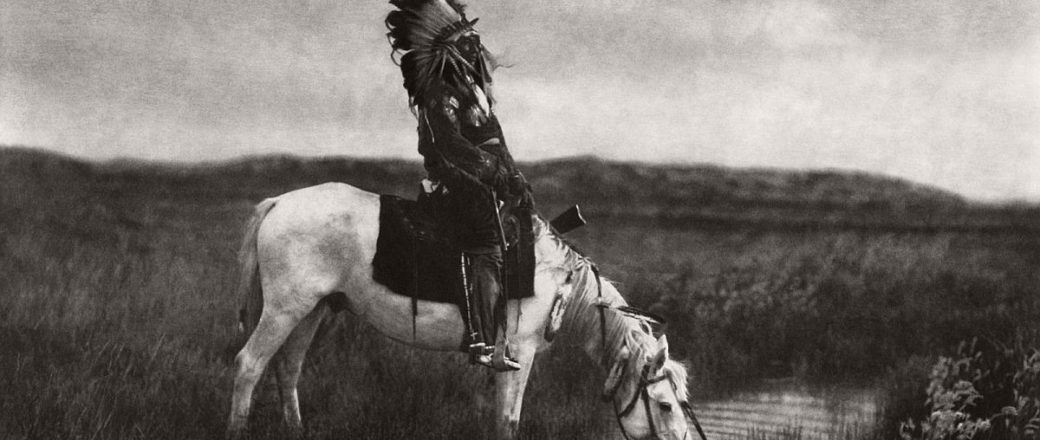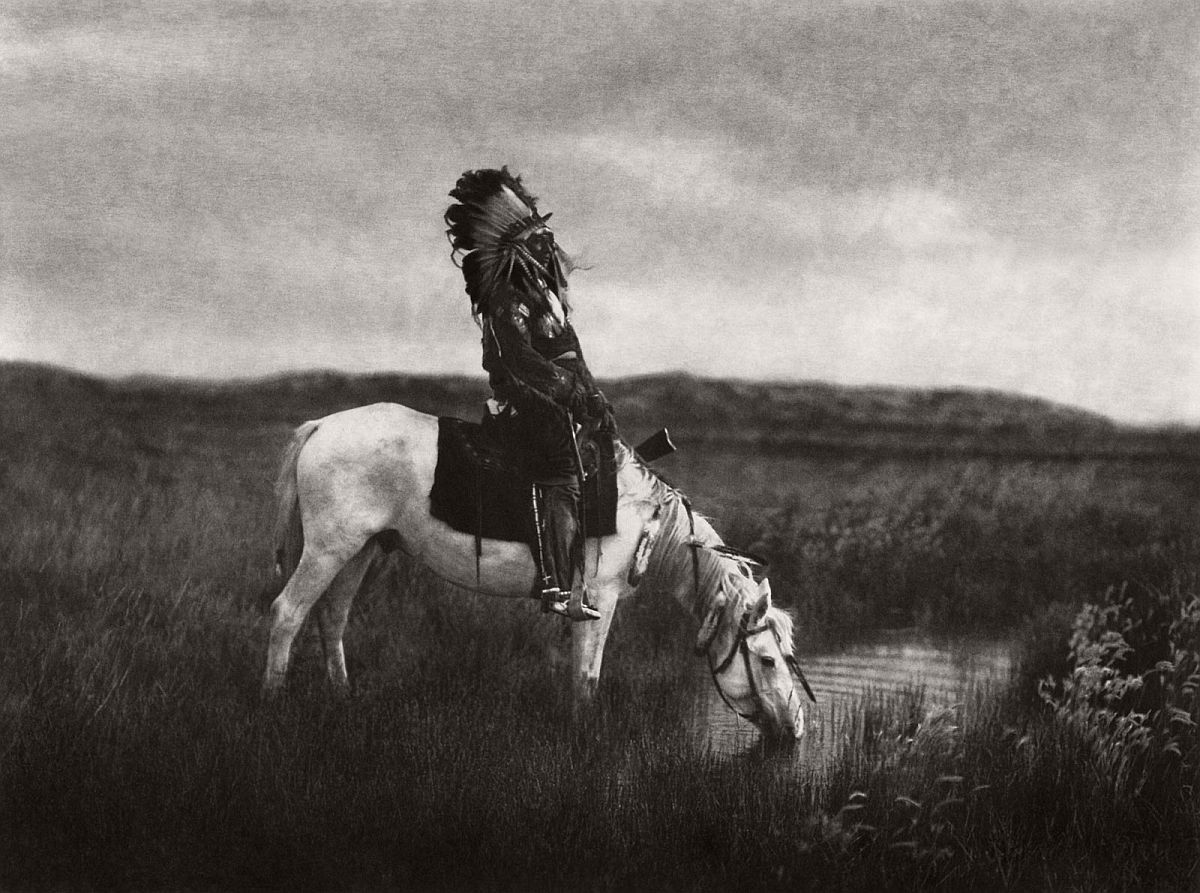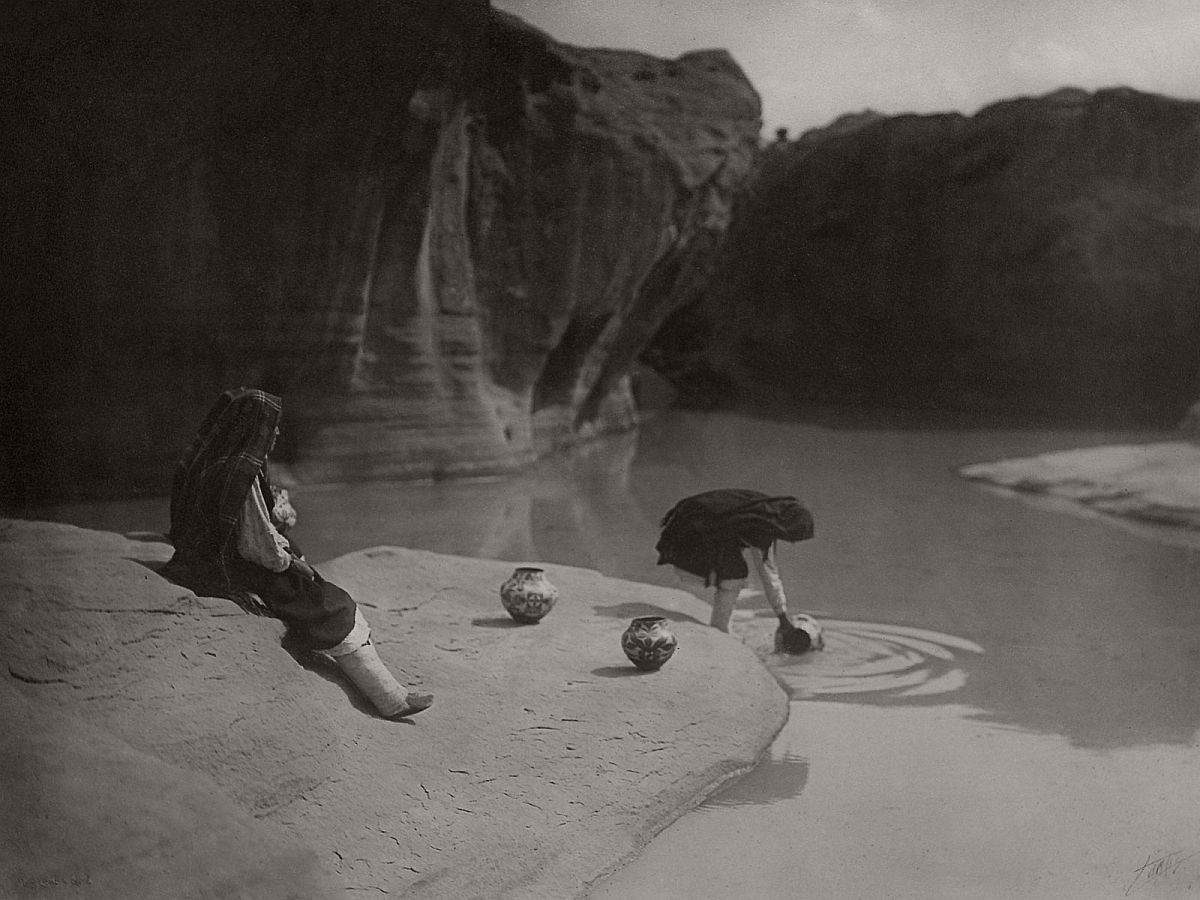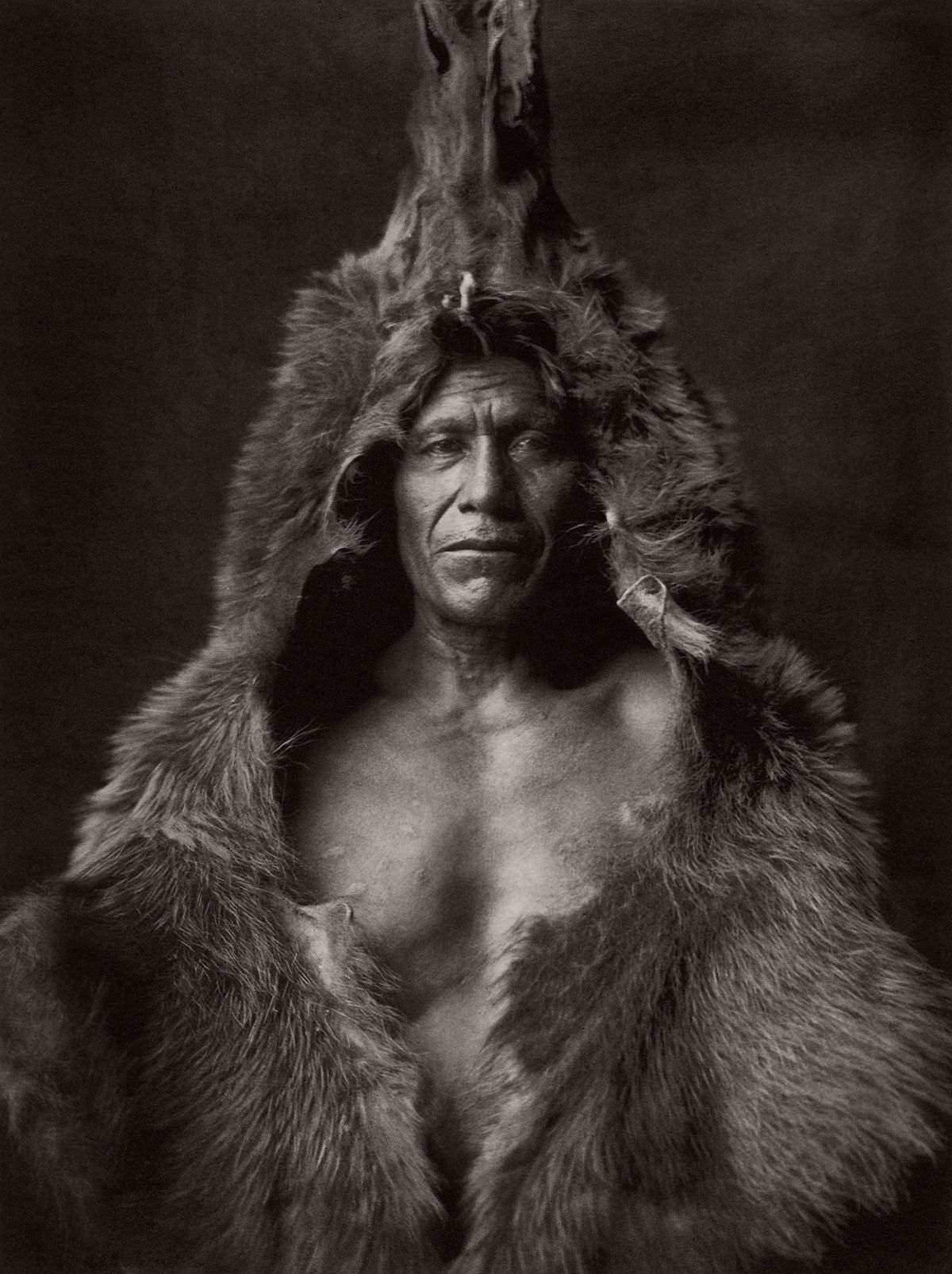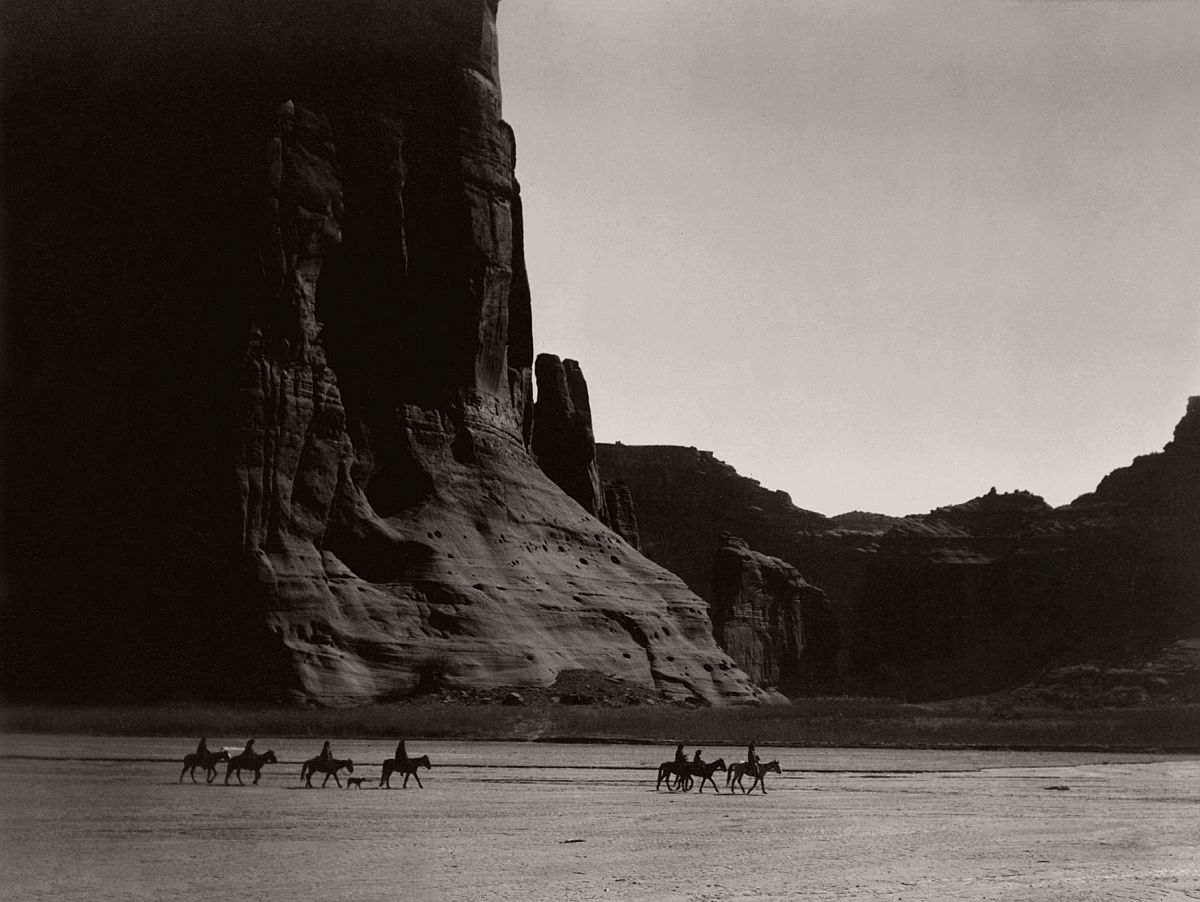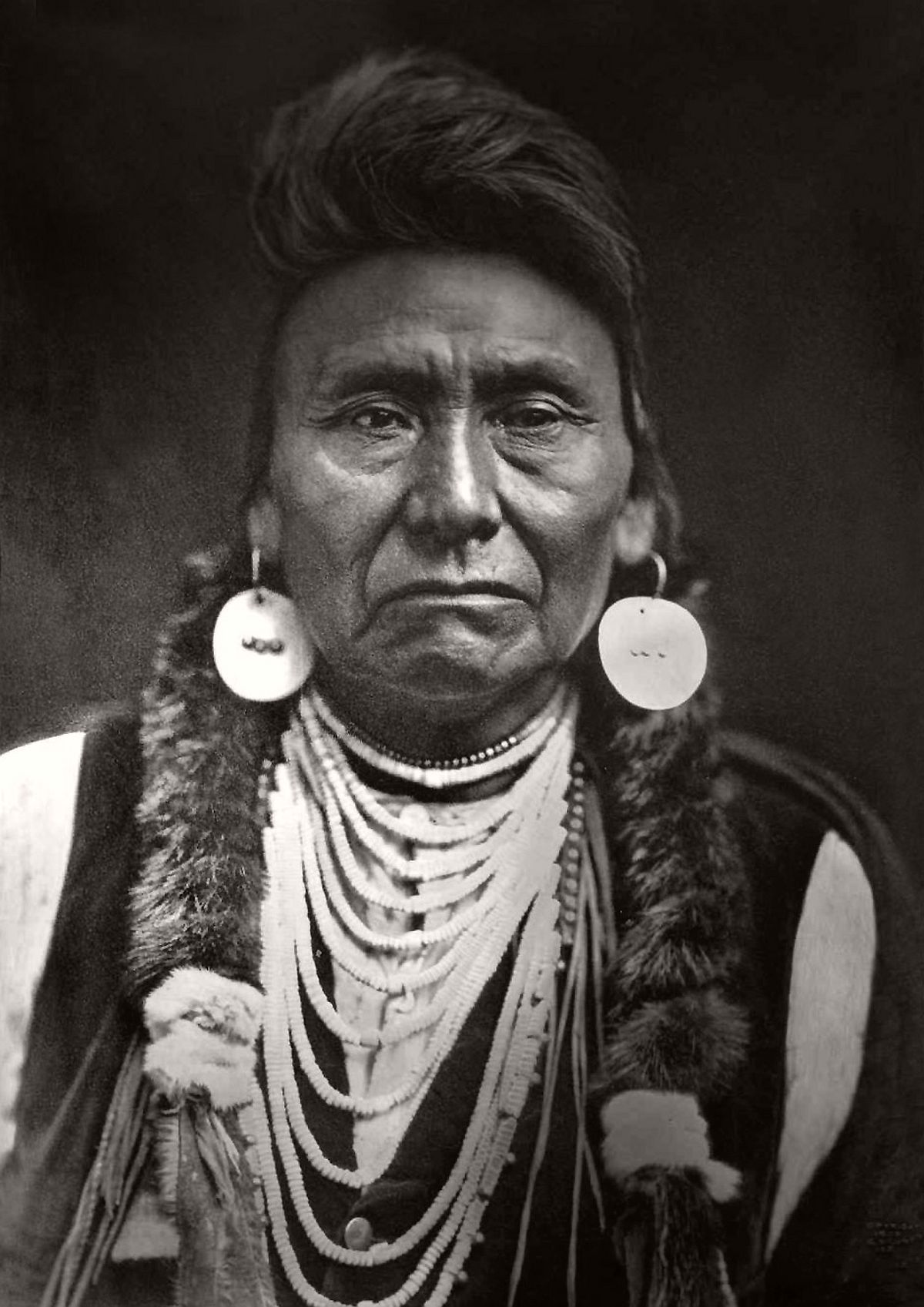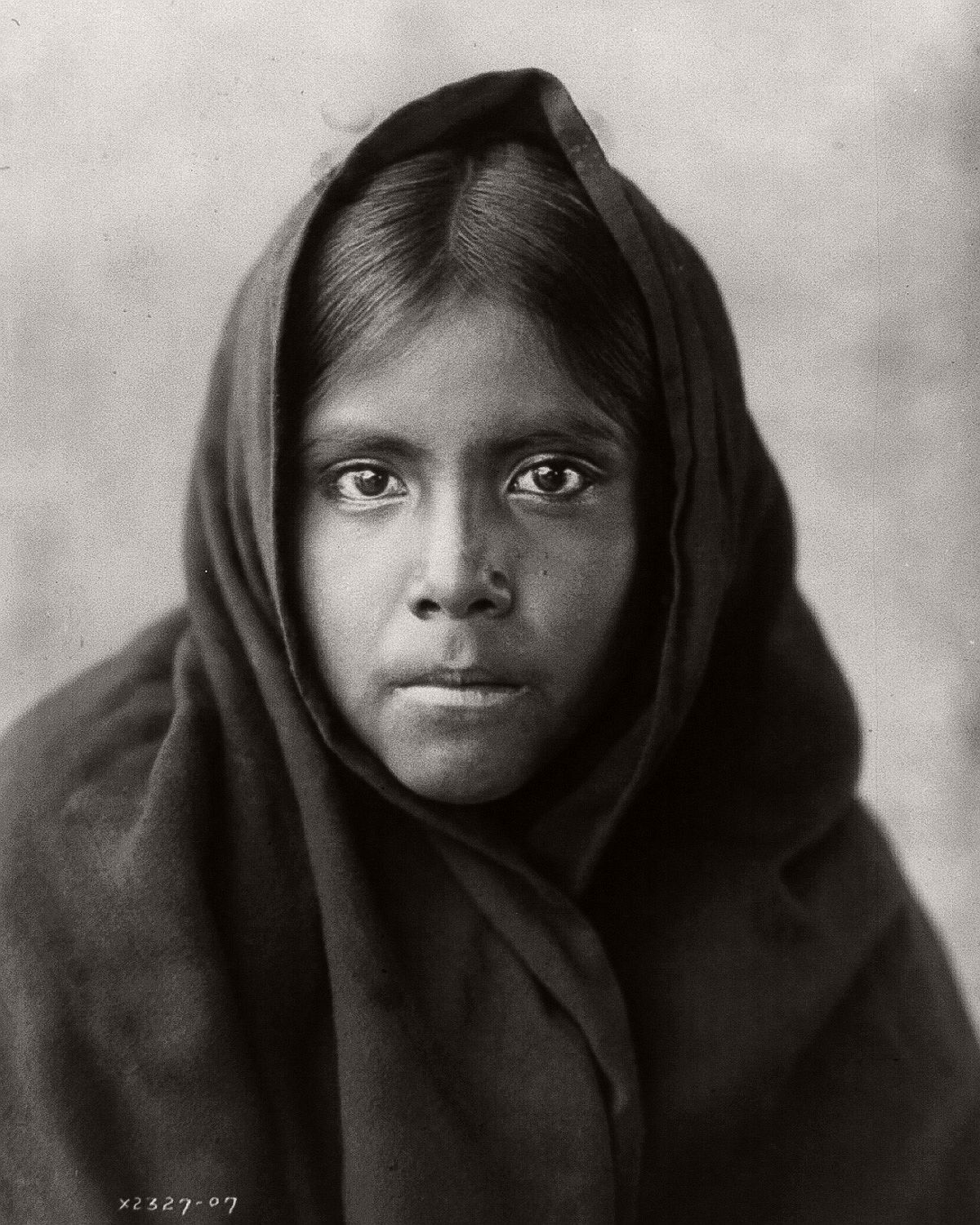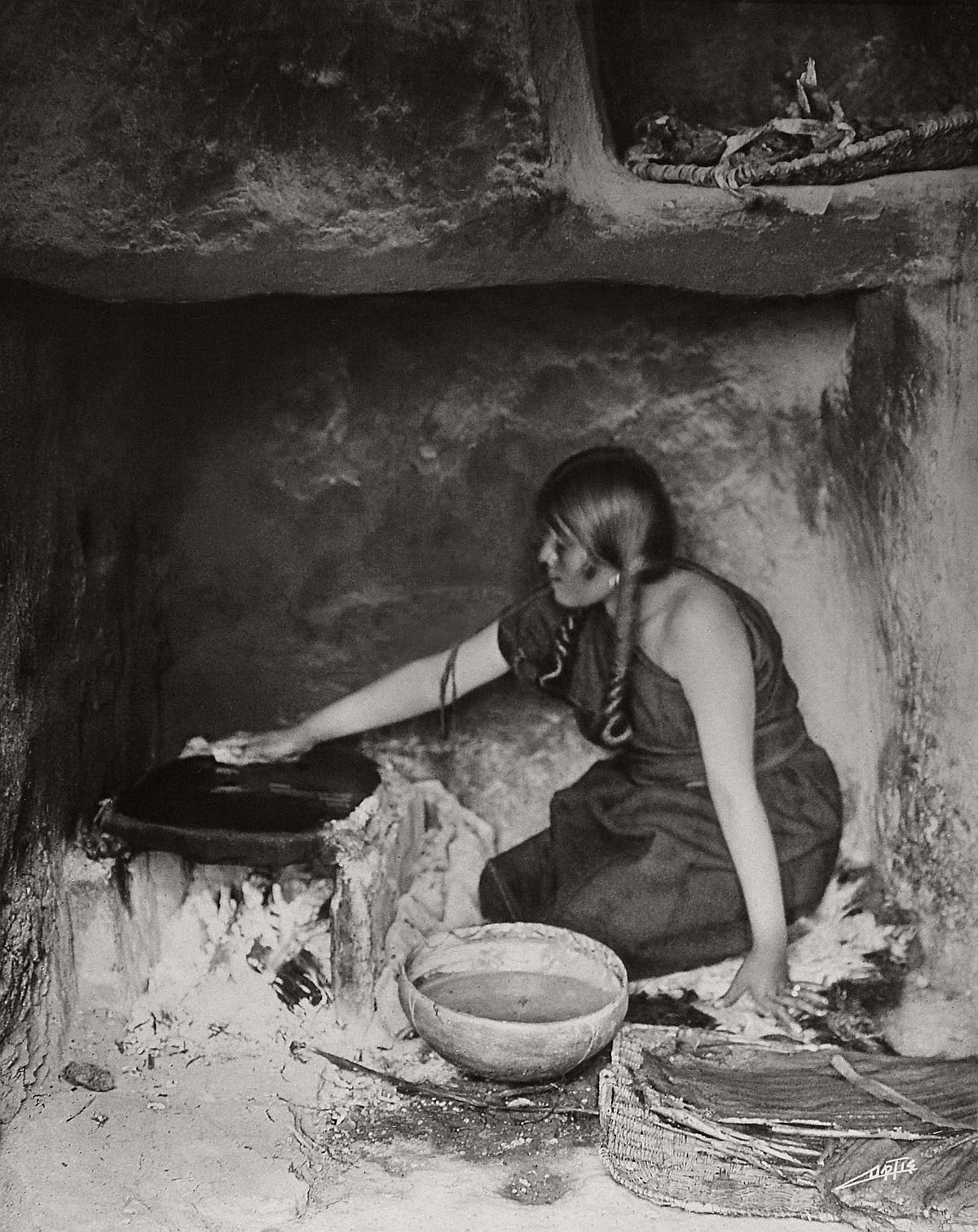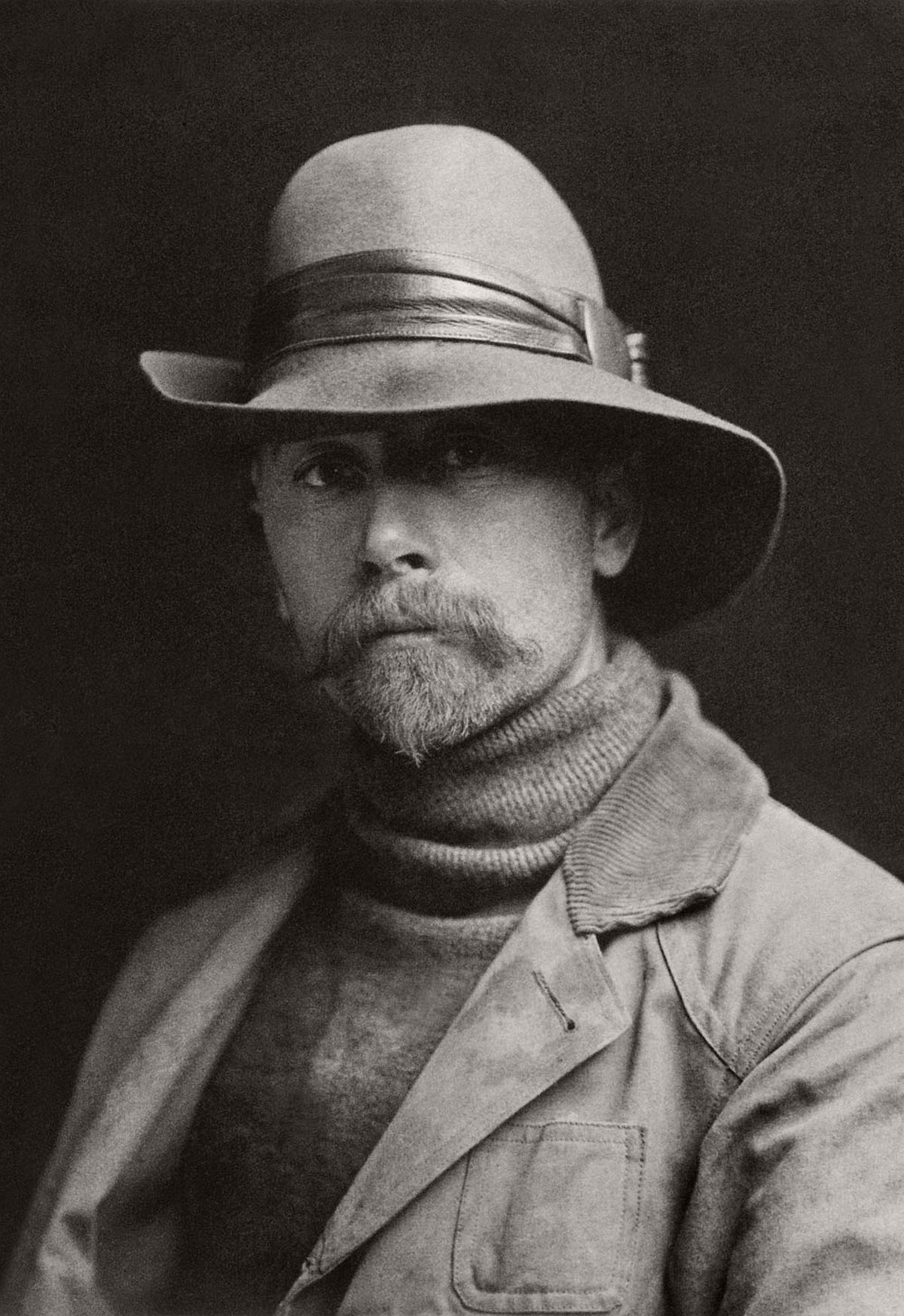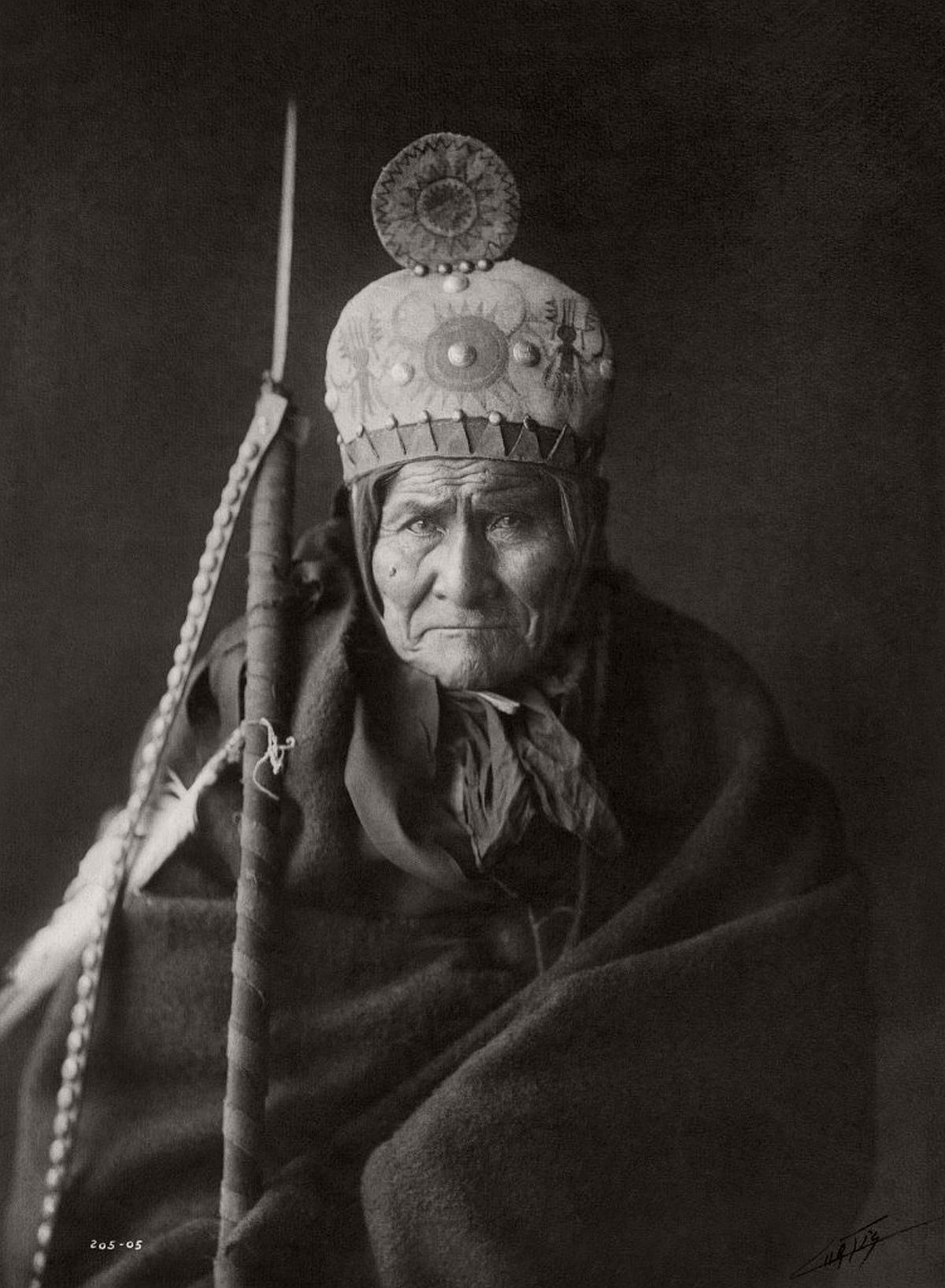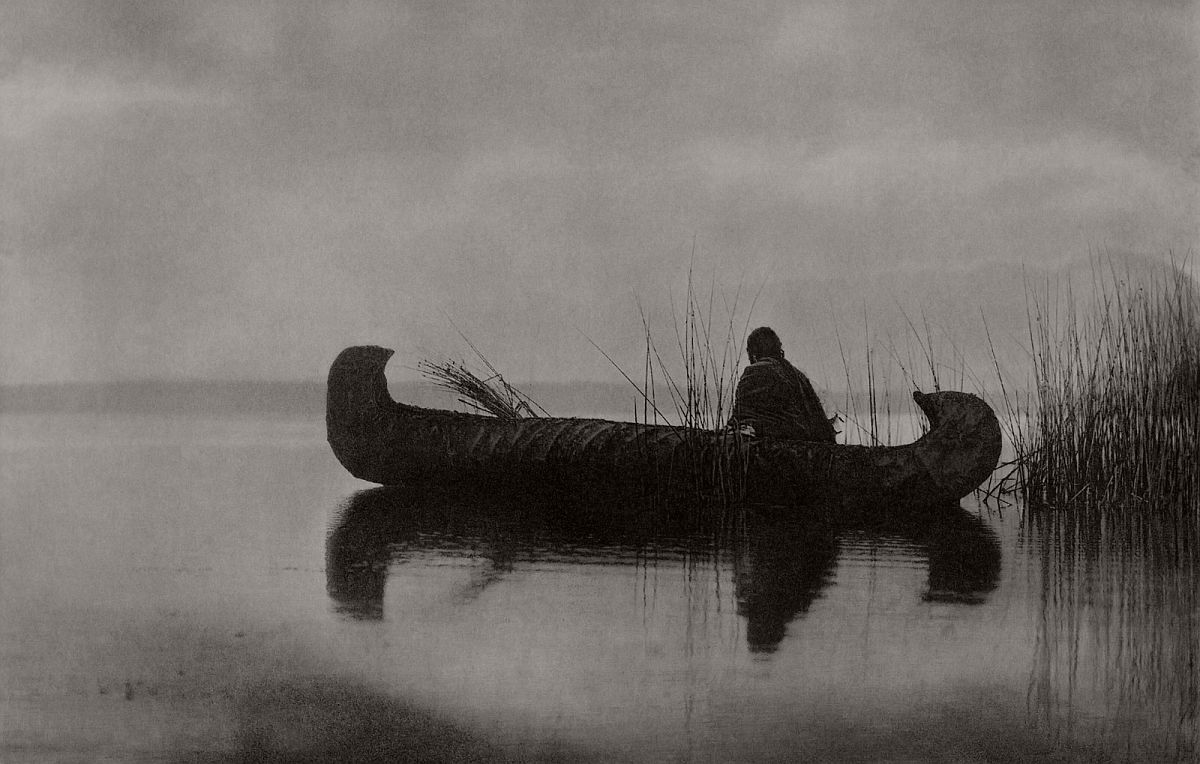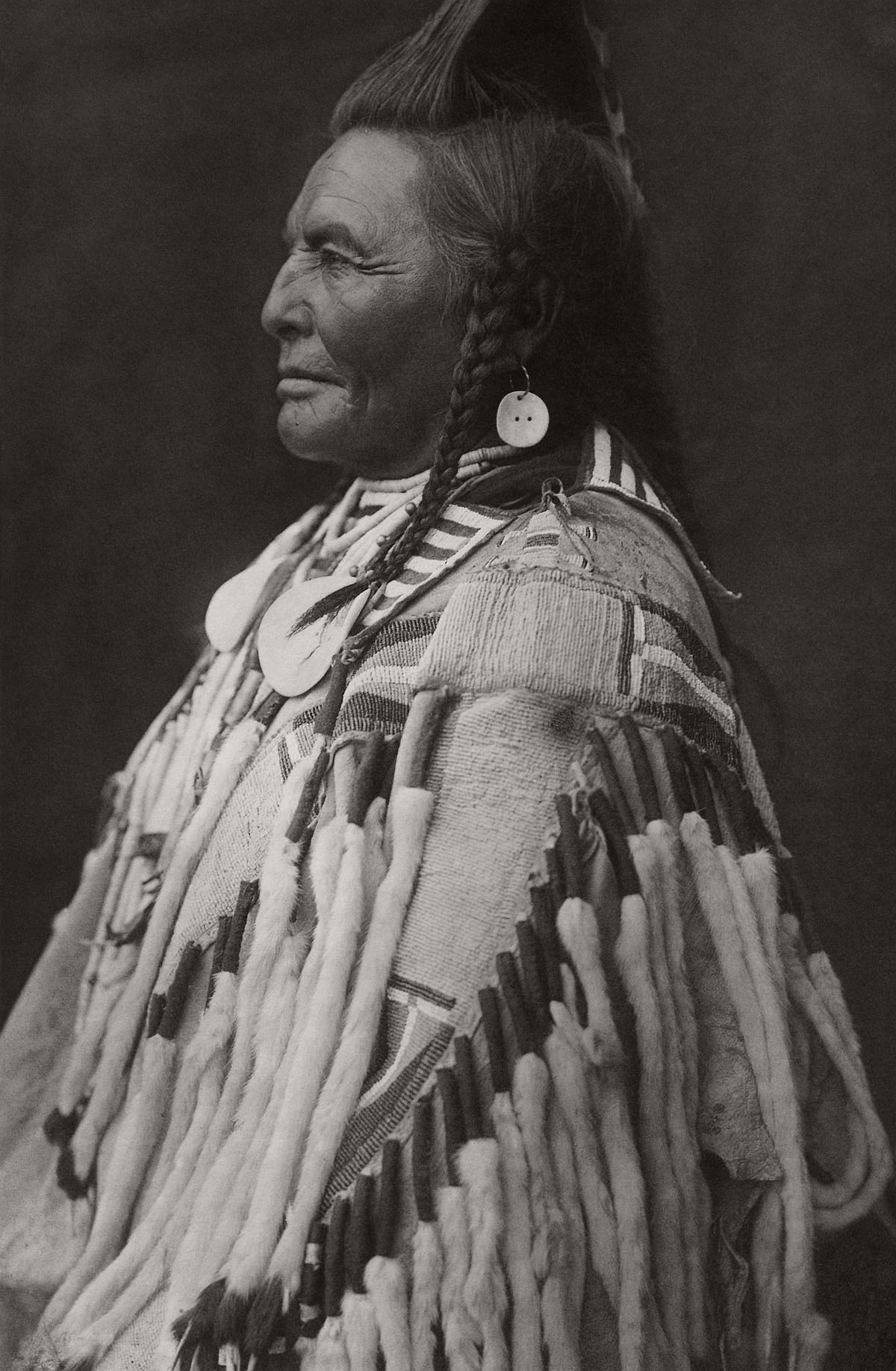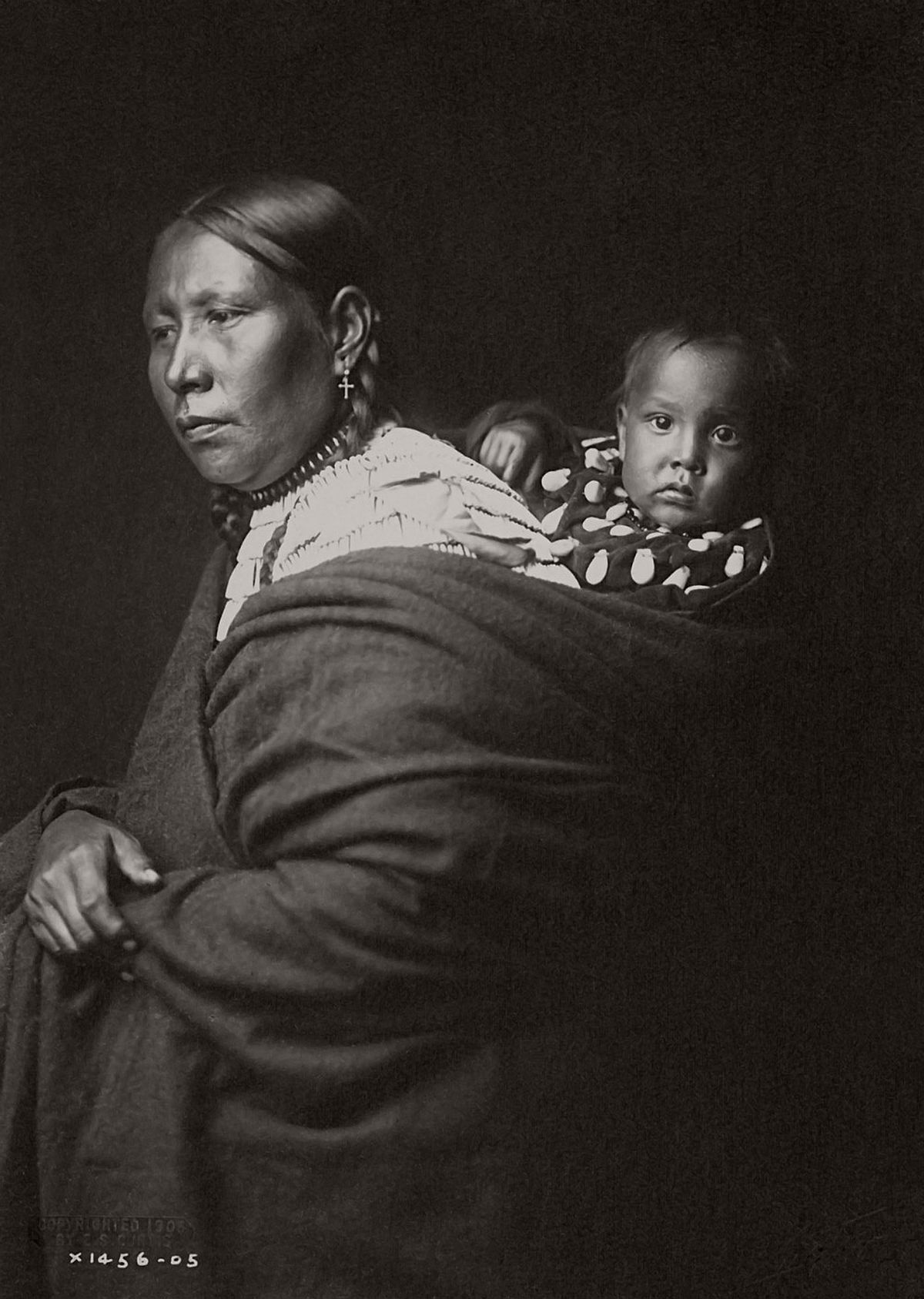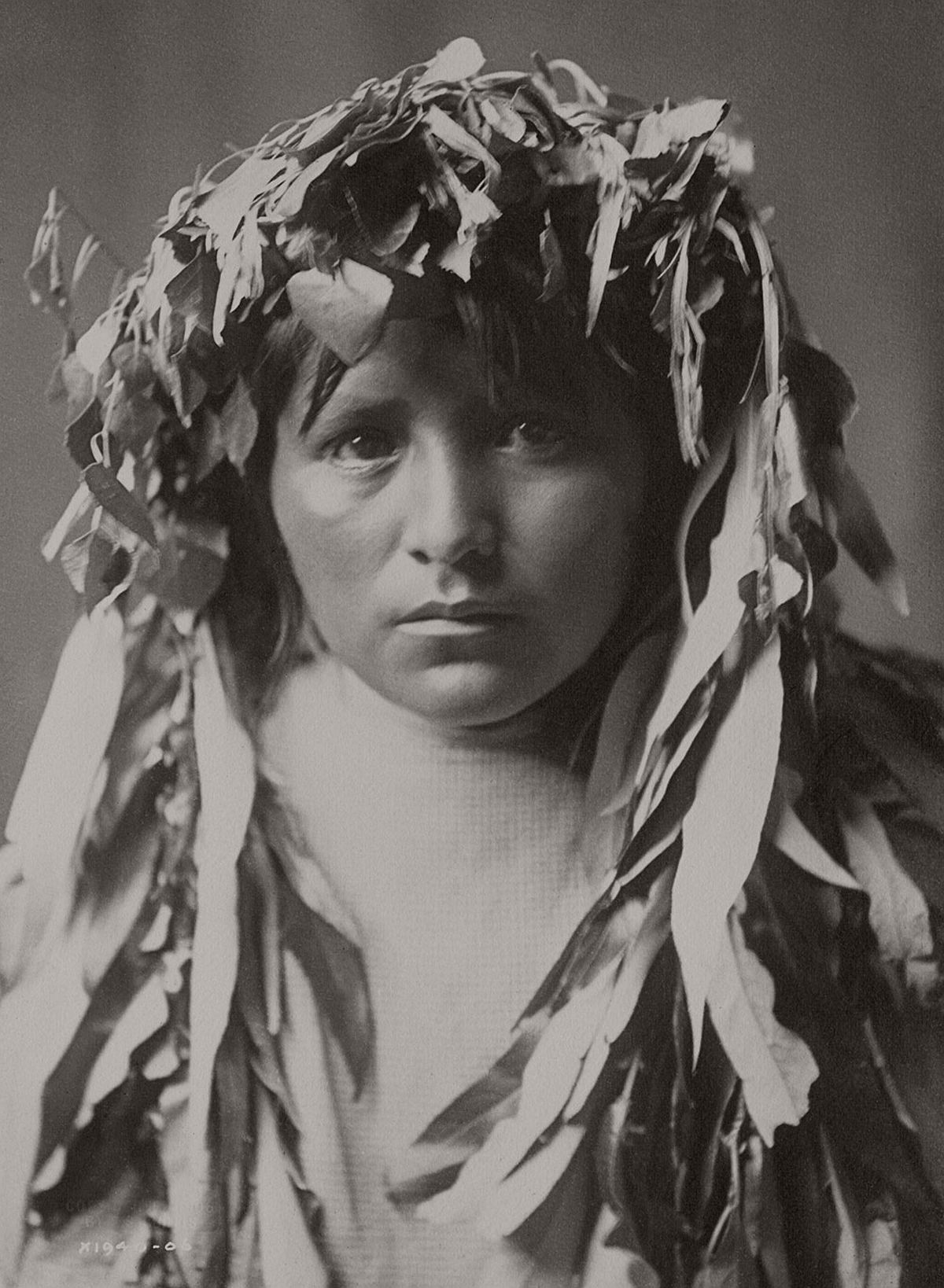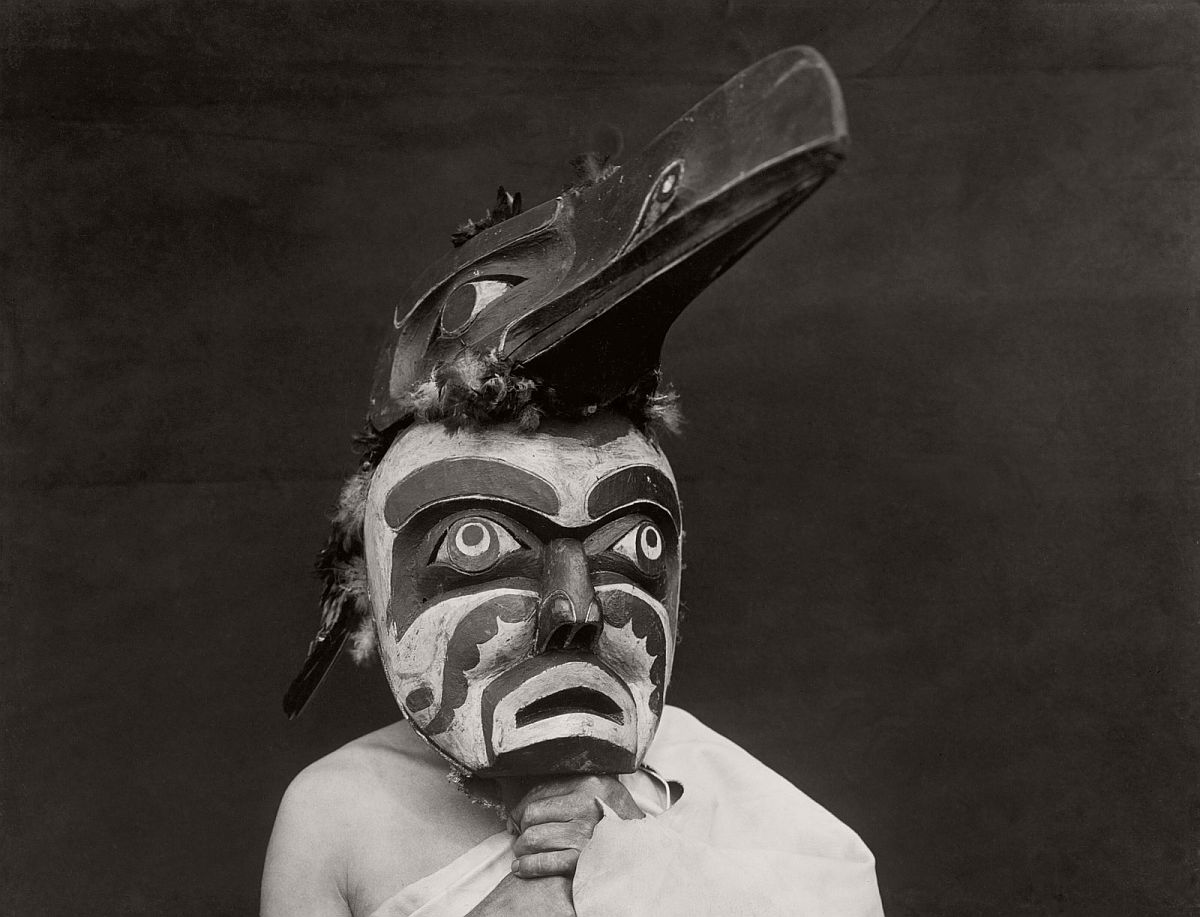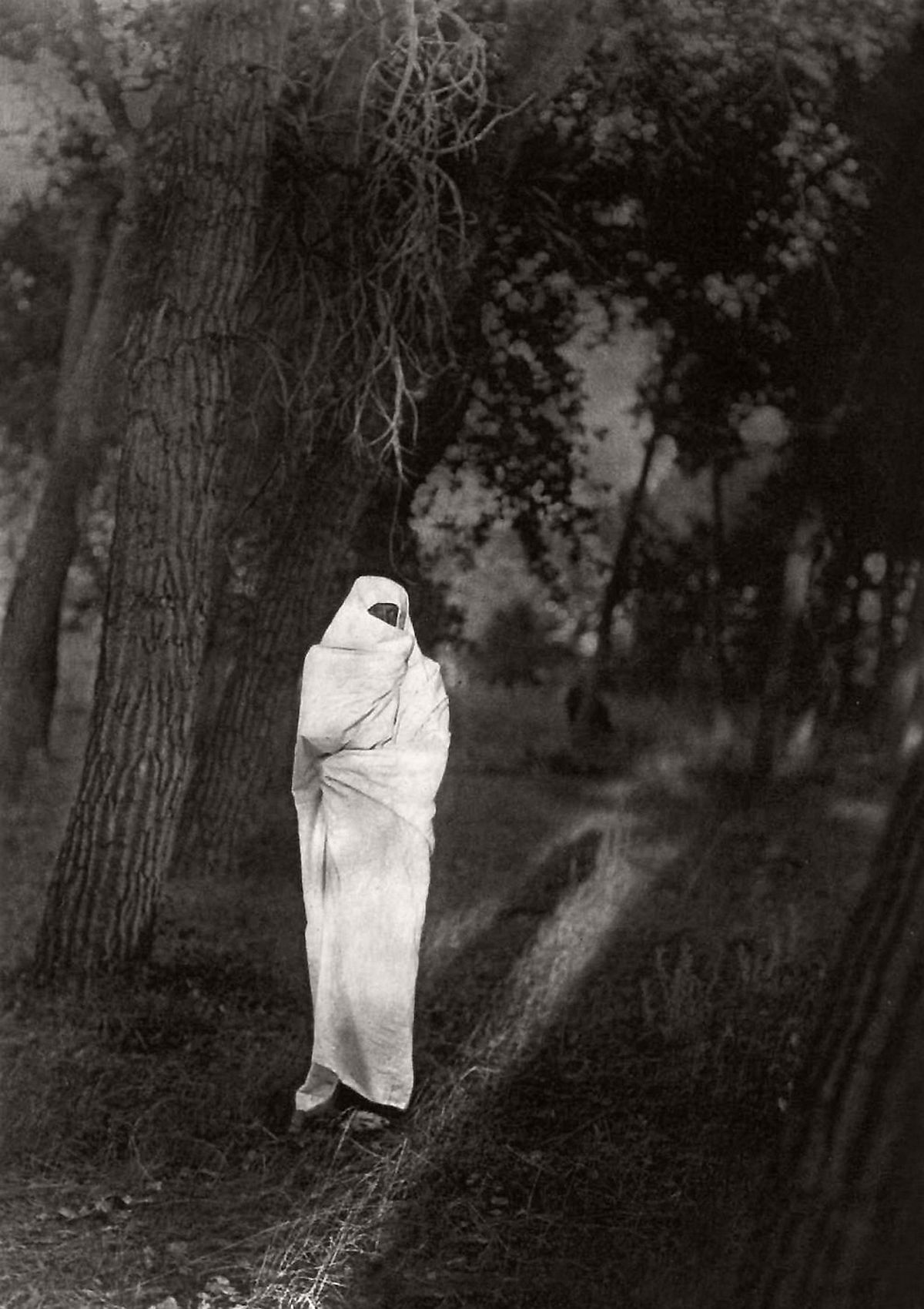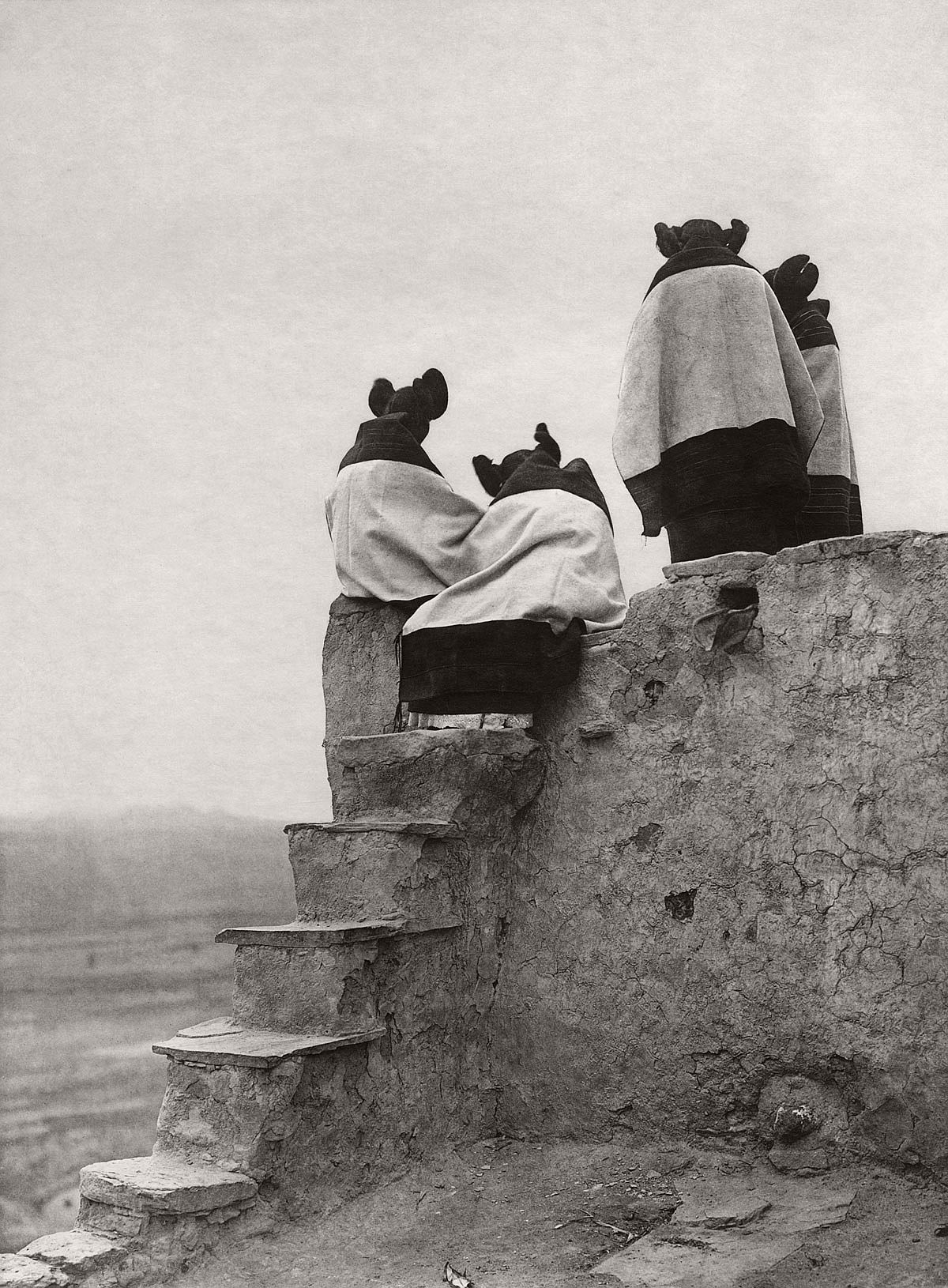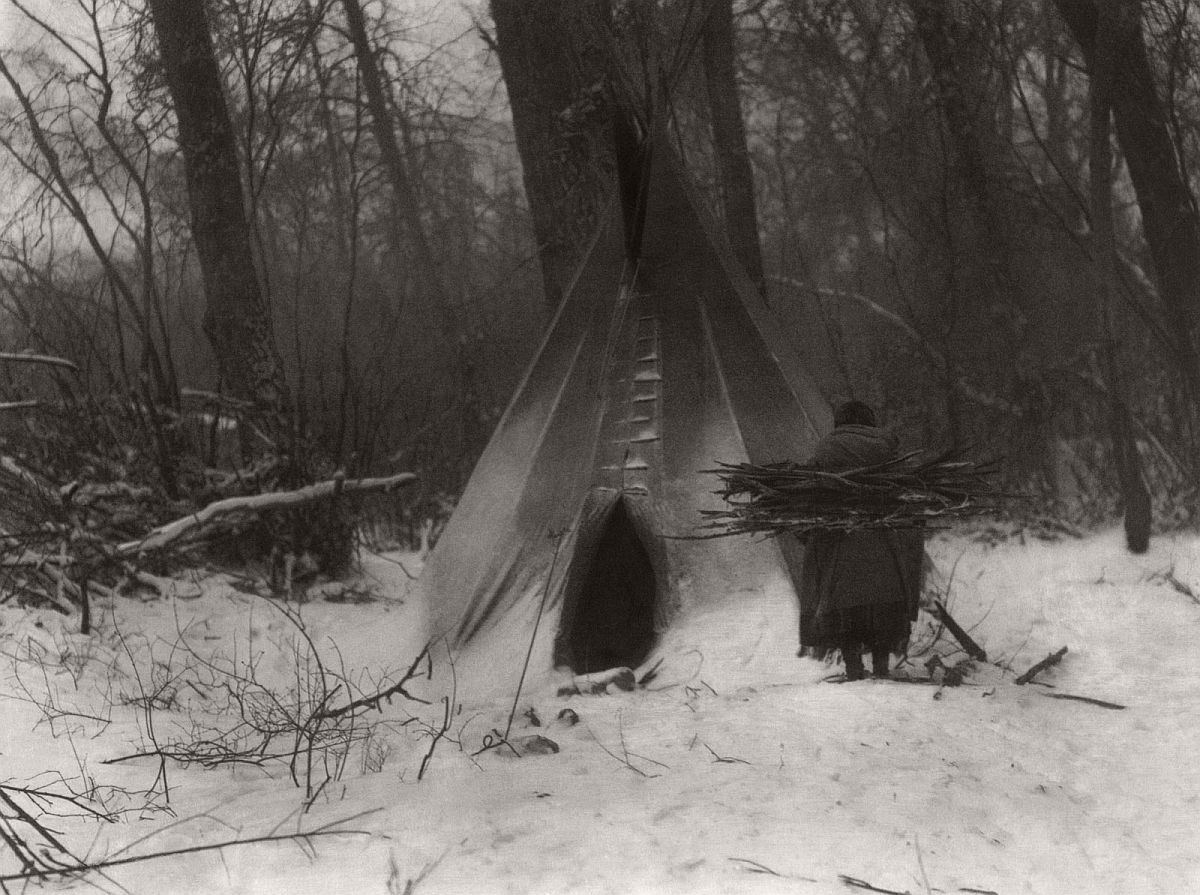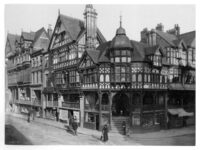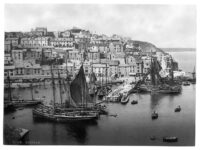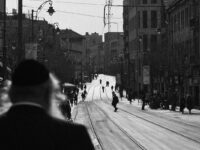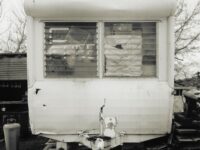Edward Sheriff Curtis (1868 – 1952) was an American photographer and ethnologist whose work focused on the American West and on Native American people.
Edward was born in Wisconsin to parents Ellen and Johnson Curtis. His sister, Eva, was born in 1870 and his brother, Asahel, in 1874. Edward also had an older brother, Ray, born in 1861. After Asahel’s birth the family moved to Cordova, a rural settlement in Le Sueur County, Minnesota, where Johnson Curtis worked as a preacher for United Brethren Church. As a boy Edward often accompanied his father on canoe trips to visit members of the congregation. His experience camping outdoors with his father helped prepare him for the extensive field work he would do later in his career.
As an adolescent Edward constructed his own camera with the help of the then popular manual Wilson’s Photographics. It is also possible that he worked for a photographer in St. Paul for a period of time before his family moved west. Because his father’s health was not good and his older brother Ray had married and moved to Portland, Oregon, Curtis took on much of the responsibility of supporting the family. He worked for a time as a supervisor on the Minneapolis, St. Paul and Sault St. Marie Railroad.
In the Fall of 1887 Edward and his father traveled to Washington Territory and by Winter had settled in the Puget Sound. They were joined by Ellen Curtis and the other two children the following Spring. Shortly after their arrival Johnson Curtis contracted pneumonia and died. Edward then assumed primary responsibility for supporting the family. Although his income was meager, he was able to buy a camera. In 1892 he married Clara Phillips and opened a portrait studio in Seattle in partnership with Thomas Guptill. While their business was very successful, they parted ways in 1897 and Curtis renamed the business Edward S. Curtis, Photographer and Photoengraver.

